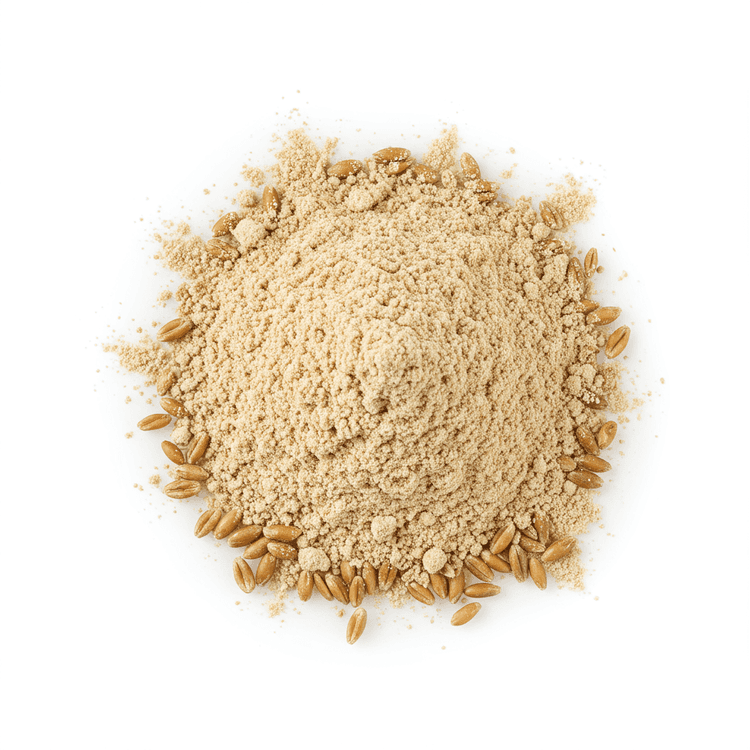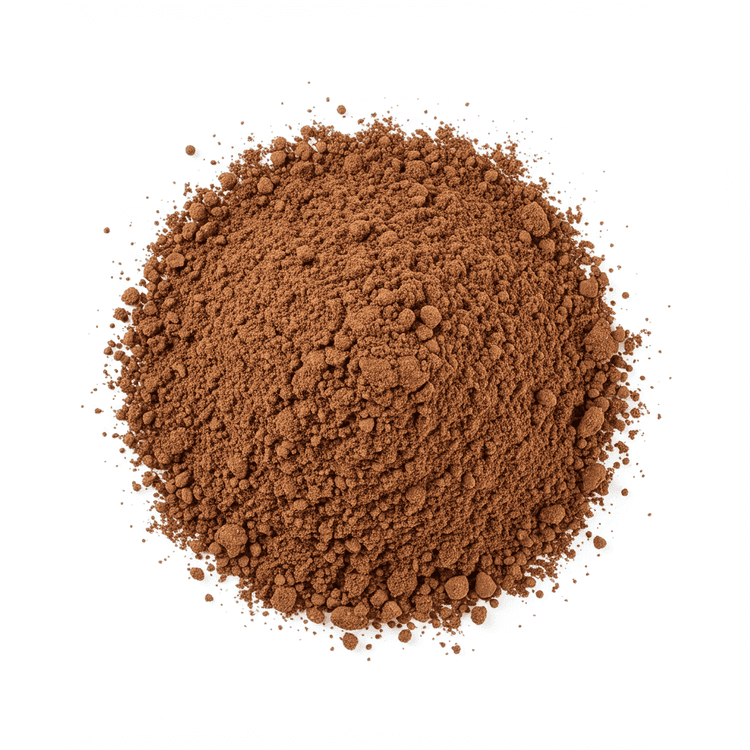
Rye Flour
Rye flour is a nutrient-rich, whole-grain flour made from ground rye berries, known for its earthy, slightly tangy flavor and dense texture. It has a darker color compared to wheat flour, ranging from light to dark brown depending on its refinement level. Rye flour is a popular choice for artisanal bread baking, particularly in traditional recipes like rye bread and pumpernickel, as it imparts a hearty flavor and chewy texture. Its lower gluten content compared to wheat flour makes it ideal for creating dense, rustic baked goods. Rye flour is also packed with dietary fiber, vitamins, and minerals, making it a wholesome ingredient for health-conscious bakers.
Common Uses
- Used to bake traditional rye bread, which has a dense texture and a tangy, hearty flavor, perfect for sandwiches or serving with soups.
- Incorporated into sourdough recipes to add depth of flavor and a chewy texture, often combined with wheat flour for balance.
- Ideal for making pumpernickel bread, a dark, slightly sweet bread that pairs well with smoked meats and cheeses.
- Used in Scandinavian and Eastern European recipes for crackers, flatbreads, and pastries, offering a rustic and earthy taste.
- Added to pancakes, muffins, or cookies for a unique twist on classic baked goods, enhancing their nutritional profile.
- Used as a thickening agent in soups or stews, contributing a subtle, nutty flavor while improving texture.
Nutrition (per serving)
Nutrition (per serving)
Calories
361.0kcal (18.05%)
Protein
10.9g (21.8%)
Carbs
76.9g (27.96%)
Sugars
1.2g (2.4%)
Healthy Fat
1.1g
Unhealthy Fat
0.2g
% Daily Value based on a 2000 calorie diet
Nutrition (per serving)
Calories
361.0kcal (18.05%)
Protein
10.9g (21.8%)
Carbs
76.9g (27.96%)
Sugars
1.2g (2.4%)
Healthy Fat
1.1g
Unhealthy Fat
0.2g
% Daily Value based on a 2000 calorie diet
Health Benefits
- Rich in dietary fiber, promoting healthy digestion and reducing the risk of constipation.
- Contains essential nutrients like magnesium, phosphorus, and iron, supporting bone health and energy production.
- Low glycemic index, helping to regulate blood sugar levels and reduce the risk of diabetes.
- Packed with antioxidants, which may help combat inflammation and support overall wellness.
- May aid in weight management by promoting a feeling of fullness and reducing overeating.
- Supports heart health by lowering cholesterol levels and improving circulation.
Substitutes
Chefadora AI is here.
Experience smarter, stress-free cooking.
Storage Tips
Store rye flour in an airtight container in a cool, dry place away from direct sunlight to maintain freshness. For longer shelf life, refrigerate or freeze the flour, especially if you live in a humid climate. Ensure the container is sealed tightly to prevent moisture and pests from contaminating the flour. Allow refrigerated or frozen flour to come to room temperature before using for best results in recipes.
Marnirni-apinthi Building, Lot Fourteen,
North Terrace, Adelaide, South Australia, 5000
Australia

